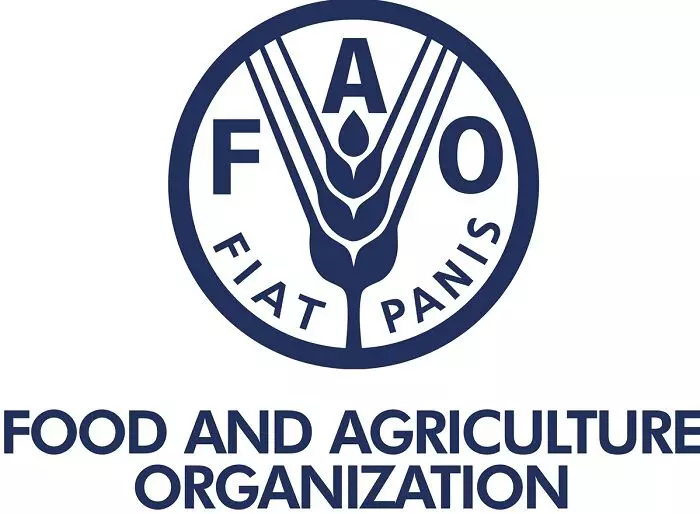- Home
- /
- FAO provides $350,000...

The Food and Agriculture Organisation (FAO) of the United Nations has provided 350,000 dollars in technical support for irrigation farming in Nigeria. The fund comes under the Technical Cooperation Programme which member states enjoy through the sectors under FAO mandate. The Country Representative of the FAO, Fred Kafeero, said this on Friday in Abuja when […]

The Food and Agriculture Organisation (FAO) of the United Nations has provided 350,000 dollars in technical support for irrigation farming in Nigeria.
The fund comes under the Technical Cooperation Programme which member states enjoy through the sectors under FAO mandate.
The Country Representative of the FAO, Fred Kafeero, said this on Friday in Abuja when he paid a visit to the Minister of Water Resources, Mr Suleiman Adamu.
Kafeero said that the FAO made the money available following the request of the minister to increase and promote irrigation farming, especially in Niger State.
He reiterated the availability of FAO to interface with the ministry on regular basis with the aim of working towards attaining food security in Nigeria and enhance economic growth.
“Today, we want to talk a little about the technical cooperation programme which FAO is discussing with the ministry and we managed to set aside technical assistance worth $350,000.
“This is part of our technical assistance to the request made by the minister to increase and promote irrigation farming, especially in Niger State.
“We want to reiterate that we are available and will continue to interface with your officials on a regular basis to ensure that we are able to serve this country to attain food security.
“And, also to ensure that we can get economic growth out of the work that we do in agriculture.
“We also have got activities that we do in the area of crop and livestock to ensure that farmers are able to produce all year round and that farmers livestock get water for use.
“Therefore, the way we manage these resources is very important and that’s why we really need to strengthen our cooperation,” he said.
Kafeero, therefore said, “My only request to the minister and the officials is that we can use this opportunity to be able to actually upscale the work that we want to do together.
“We think that is innovative work in terms of how we can be able to bring micro-irrigation to as many farmers as possible.
“And, that will require that we plugin very well into the existing programmes of the ministry and also the new ones the ministry is trying to put in place.”
The Deputy FAO Country Representative, Suleiman Abubakar, said the Technical Cooperation Programme was set aside to support the request of member countries.
He said that this, specifically the government of those countries in addressing technical issues or unlocking any potential linked to FAO’s areas of mandate.
“Normally, these amounts are not much in terms of quantity but it will provide support to either demonstrate some technologies as in the case of the current technical cooperation programme that we are developing with the Ministry of Water Resources in the area of drip irrigation system.
“This has been identified by the irrigation department of the ministry as an innovative approach to promote access to irrigation facilities particularly for smallholder farmers.
“To building institutional capacity to existing River Basin authorities that have the mandate as well to promote access to water for agriculture and agro related production systems, “he said.
According to him, the activities of the project includes appraisal or design review of the identified pilot project to benchmark existing performance efficiency of the scheme, carrying out feasibility and detailed design reports for the implementation of drip irrigation system.
Abubakar said that it also supports the installation process of drip irrigation facilities until commissioning and testing at project sites, among others.
He said that the project was for the identification and conversion of a suitable (and existing) public irrigation project from flood-based irrigation system to low-energy drip irrigation system.
The country representative said the idea was to employ efficient on-farm water management practices to produce more crops, on the same land, using less amount of water.
Abubakar said, “this concept will provide the opportunity to bring more land under cultivation utilizing existing irrigation facilities.
“Secondly, it will also assist in guiding the Federal Ministry of Water Resources (FMWR) efforts towards job creation and increased self-sufficiency in food production.”
The Minister Water Resources, Mr Suleiman Adamu, commended FAO for supporting the development of the national irrigation policy and strategy.
Abubakar said that there should be synergy between FAO and the Federal Ministry of Water Resources as there were number of uses of water resources, to supply hydropower also use for irrigation for agriculture.
He noted statistics show that about 70 per cent of water resources go to irrigation globally, saying “there is no way FAO will be talking of food and agriculture without talking about water”.




